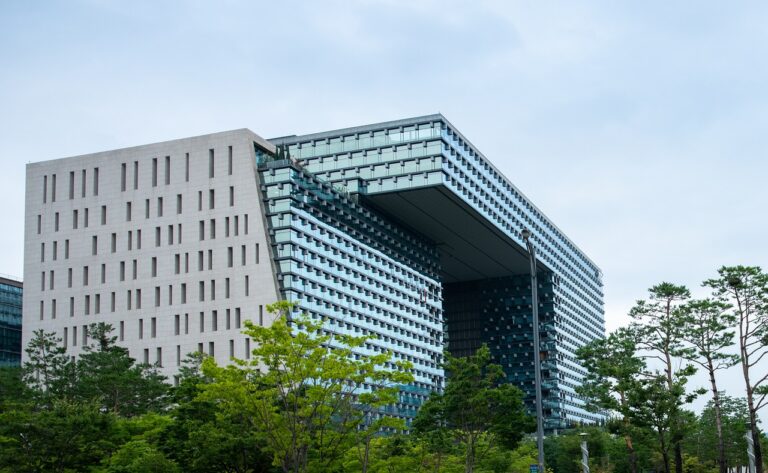Biotechnology’s Role in the Future of Food Production: Gold bet 7, Radhe exchange, 11xplay.online
gold bet 7, Radhe Exchange, 11xplay.online: Biotechnology’s Role in the Future of Food Production
In recent years, biotechnology has played a significant role in revolutionizing the way we produce food. From genetically modified crops to lab-grown meat, advancements in biotechnology have the potential to address many of the challenges facing the global food supply chain. In this article, we will explore the various ways in which biotechnology is shaping the future of food production and examine the potential benefits and risks associated with these technologies.
Advancements in Genetic Engineering
One of the most significant contributions of biotechnology to food production is the development of genetically modified organisms (GMOs). GMOs are crops that have been genetically engineered to exhibit certain desirable traits, such as resistance to pests or herbicides. By introducing these traits into crops, farmers can increase their yields and reduce their reliance on harmful chemicals.
GMOs have been a topic of controversy in recent years, with some people expressing concerns about their safety and impact on the environment. However, numerous studies have shown that GMOs are safe for consumption and can help address food security issues around the world. In the future, we can expect to see more genetically modified crops being developed to withstand the effects of climate change and improve nutritional content.
Lab-Grown Meat
Another exciting development in biotechnology is the emergence of lab-grown meat. Instead of raising and slaughtering animals for meat production, scientists are now able to grow meat in a lab using animal cells. This technology has the potential to revolutionize the meat industry by offering a more sustainable and ethical alternative to traditional meat production.
Lab-grown meat has several advantages over conventional meat production, including a lower environmental footprint, reduced animal suffering, and fewer health risks. While the technology is still in its early stages, many experts believe that lab-grown meat could eventually replace traditional meat as the primary source of protein for the growing global population.
Vertical Farming
Vertical farming is another area where biotechnology is making a significant impact on food production. Vertical farms use hydroponic systems and artificial lighting to grow crops indoors, allowing for year-round production in controlled environments. This technology has the potential to increase food security and reduce the environmental impact of agriculture.
Vertical farming offers numerous benefits, including higher crop yields, reduced water usage, and decreased transportation costs. By growing crops closer to urban centers, vertical farms can also reduce the carbon footprint of food production and provide fresh produce to local communities. As this technology continues to evolve, we can expect to see more vertical farms popping up in cities around the world.
Precision Agriculture
Precision agriculture is another area where biotechnology is transforming the way we produce food. This approach uses data analytics, GPS technology, and sensors to optimize crop yields and reduce input costs. By monitoring crop health, soil conditions, and weather patterns, farmers can make more informed decisions about when and where to apply fertilizers, pesticides, and other inputs.
Precision agriculture has the potential to increase the efficiency and sustainability of food production by minimizing waste and maximizing productivity. By using real-time data and analytics, farmers can optimize their operations and reduce their environmental impact. As this technology becomes more widespread, we can expect to see a more sustainable and productive agricultural sector.
Future Challenges and Opportunities
While biotechnology offers numerous benefits for food production, it also presents some challenges and risks that must be addressed. Concerns about genetic modification, food safety, and environmental impact remain prevalent in the public discourse. As we continue to develop new biotechnologies, it is essential to engage with stakeholders and address these concerns in a transparent and responsible manner.
At the same time, biotechnology presents exciting opportunities for innovation and collaboration in the food industry. By leveraging the power of biotechnology, we can develop new solutions to feed a growing global population sustainably. From GMOs to lab-grown meat, the future of food production is being shaped by biotechnology, and the possibilities are endless.
FAQs
Q: Are GMOs safe to eat?
A: Yes, numerous studies have shown that GMOs are safe for consumption and have been approved by regulatory agencies around the world.
Q: What is the environmental impact of lab-grown meat?
A: Lab-grown meat has a lower environmental footprint than conventional meat production, as it requires fewer resources and produces fewer greenhouse gas emissions.
Q: How can precision agriculture help farmers?
A: Precision agriculture can help farmers optimize their operations, increase crop yields, and reduce input costs by using data analytics and technology to make informed decisions.
Q: Will vertical farming replace traditional agriculture?
A: While vertical farming offers many benefits, it is unlikely to replace traditional agriculture entirely. Instead, it can complement traditional farming methods and help increase food security in urban areas.
In conclusion, biotechnology is playing a crucial role in shaping the future of food production. From genetically modified crops to lab-grown meat, these technologies have the potential to address many of the challenges facing the global food supply chain. By leveraging the power of biotechnology, we can create a more sustainable, efficient, and resilient food system for future generations.







